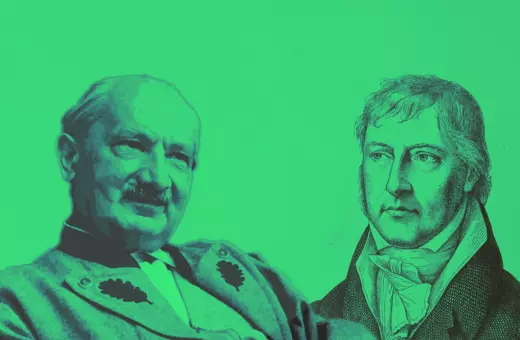‘If Christianity is the truth, then all the philosophy written about it is false’ This pronouncement has not served to endear Wittgenstein to many philosophers of religion or militant atheists seeking to debunk religious belief. The former think that Wittgenstein has eviscerated religious belief of serious content, while the latter believe that what Wittgenstein is offering is a recherché form of apologetics for religion. Both characterizations are wide of the mark. To understand why, one has to appreciate Wittgenstein’s unique philosophical approach. Doing so will help one recognise why contemporary debates around religion, like the one surrounding the so-called new atheists, mistakenly conflate religion with other practices, like science.
 SUGGESTED READING
Wittgenstein's Tractatus at 100
By IAI Editorial
SUGGESTED READING
Wittgenstein's Tractatus at 100
By IAI Editorial
Wittgenstein not only invented a new philosophical method – which he once described as similar to the shift from alchemy to chemistry – he also used it in an iconoclastic manner, in order to dissolve, rather than solve, the great philosophical problems of the past. Philosophy is not a body of knowledge for Wittgenstein, but an activity of grammatical (conceptual) clarification or elucidation. Wittgenstein aims to liberate us from the spell that language casts by freeing us from the conceptual confusions and illusions that hold us in thrall. Because language is full of substantives, for example, and we naively assume that the meaning of a word is the object it refers to – Wittgenstein calls this Augustine’s picture of language – if we are unable actually to find such an object in the world, we take it that there must be a ‘supernatural’ object or spirit that the word can refer to instead: ‘Where our language suggests a body and there is none: there, we should like to say, is a spirit [Geist]’ (Philosophical Investigations §36). Arguably, this temptation is behind Plato’s theory of the Forms – the ‘Form of the Good’ or of ‘Beauty’ can never be found in the myriad different objects we actually apply the words ‘good’ or ‘beautiful’ to, but only in a metaphysical realm of ‘Forms’ populated by the abstract objects that are the alleged referents of these unadulterated essences. Similarly, many mathematicians (including philosophers of mathematics) think that since number words cannot refer to empirical objects in the world, they must refer instead to abstract objects. Relatedly, philosophers of religion, theologians and ordinary religious people believe that the word ‘God’ is the name of a supernatural object or entity. For the word ‘God’ looks like a proper name, but clearly cannot refer to something that is empirically locatable, otherwise God would be a spatio-temporal object, something that most monotheistic religions would deny. Hence, we assume instead that ‘God’ must be the name of a disembodied, purely ‘spiritual’ being: something very much like a ‘gaseous vertebrate’ (a phrase that Wittgenstein borrows from Häckel). In other words, the ‘surface grammar’ of the word ‘God’ tempts us to think that ‘God’ names a human-like, disembodied, entity, when, really, Wittgenstein is suggesting, the ‘depth grammar’ is quite different.





















Join the conversation